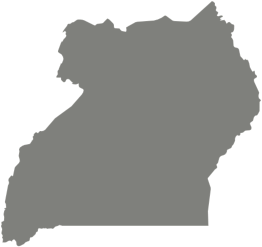Feed the Children works in the Gulu and Amuru districts of Northern Uganda where we implement activities in our four pillar areas, which include food and nutrition, health and water, education, and livelihoods. Through the Care Group approach, we help mothers provide better care to their children by facilitating training sessions about nutrition and illness. During this process, we help mothers monitor the growth of their children to ensure the child is receiving the proper nutrition for healthy growth.
Important messages have included immediate breastfeeding, exclusive breastfeeding until 6 months of age, and age-appropriate complementary feeding. Since starting these education activities for mothers, the percent of children admitted each month into the supplementary feeding program at the local health centers fell from 60% to 30%. Through deworming medications and vitamin supplements, we help make sure children are protected from preventable diseases.

Rural population without access to an improved latrine 81%.
Household access to clean drinking water 74%
Population
41 Million
Average years of schooling
6.1 years
People living below poverty line
19.5%
Babies born with low birth weight
10%
Country Profile
Although Uganda is a Sub-Saharan African country with one of the highest rates of poverty reduction, the country remains among the poorest in the world. Uganda lacks important non-monetary resources such as sufficient sanitation, access to electricity, health and well-being, education and nutrition. Families in Uganda are often large. With the lack of finances and resources, larger families are highly likely to fall below the poverty line. Poor health also reduces a family’s work productivity, causing poverty to be passed down through generations.
Uganda has one of the youngest and most rapidly growing populations in the world, with 48% of the population under the age of 15. The country receives influxes of refugees fleeing socio-political and military conflicts in its bordering neighbors of Democratic Republic of the Congo and South Sudan. The country’s north and northeast regions lag developmentally behind the rest of the country as a result of long-term conflict of more than 20 years of fighting between the Lord’s Resistance Army (LRA) and Ugandan government forces. This ongoing inter-communal violence, combined with periodic natural disasters and unregulated environmental hazards contribute to further poverty and susceptibility to conflict, disease, and decreased agricultural outputs.
Support Our Programs
We are excited about the work that is being done in Uganda to improve the nutritional status of young children. We are increasing access to education and promoting healthy behaviors through training on water, sanitation and hygiene. We are empowering families and communities to overcome poverty and become self-sustaining. One way our team in Uganda is accomplishing this is by promoting the importance of primary education. In many communities where we work, access to a high-quality education is challenging. Parents do not always see the long-term benefit of educating their children. With the high costs of tuition and school supplies, it is difficult for families to justify sending their children to school instead of helping with household chores or contributing to family incomes. FEED works with communities in Uganda to educate parents on the importance of primary education, especially for girls. When parents understand the long-term benefits of sending their children to school, there is more commitment to prioritizing education. Would you consider partnering with FEED to continue this important work? Your support enables us to continue implementing education activities like promoting the importance of education with caregivers.

